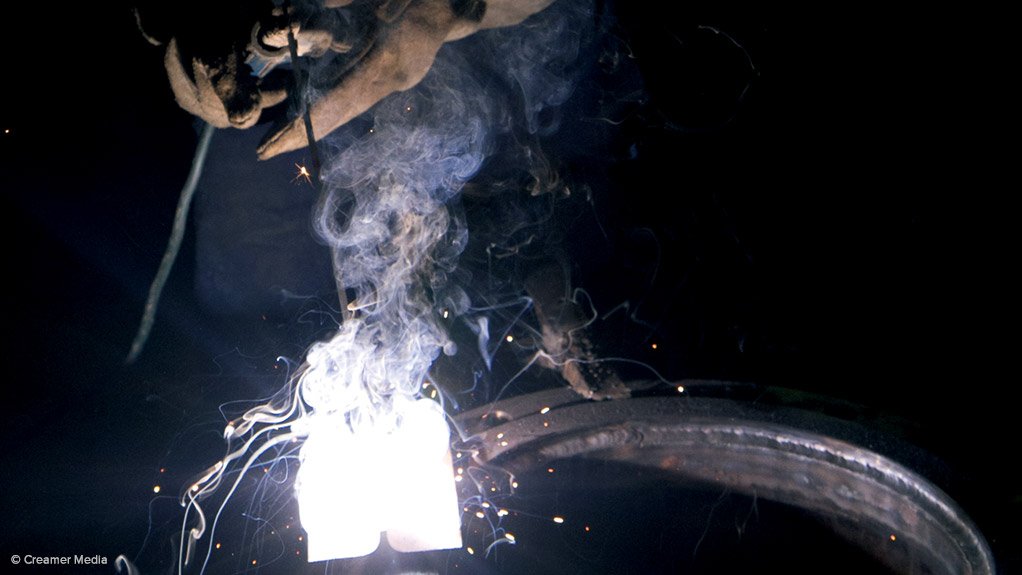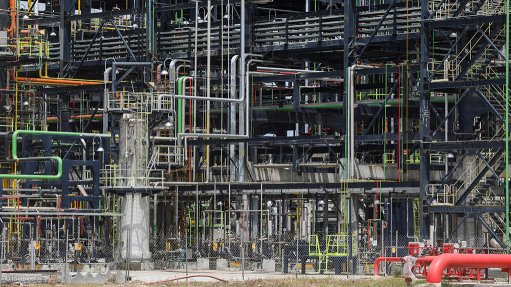MEIBC confident of strike resolution
The Metal and Engineering Industries Bargaining Council (MEIBC) on Monday said it was confident of a resolution to the ongoing metals and engineering strike as the parties to the negotiations display a “sense of urgency and purpose”.
The council said it was working consistently to ensure that the parties find an agreement and bring the one-week-long industrial action to an end “as soon as possible”.
A report by Newswire Reuters indicated that the unions and employers bodies were set to resume talks on Tuesday.
This emerged after the National Union of Metalworkers of South Africa’s (Numsa’s) rejection of a renewed wage offer from the Steel and Engineering Industries Federation of Southern Africa (Seifsa) and talks between the trade union and the National Employers' Association of South Africa (Neasa) deadlocked.
Neasa, which has about 23 000 employer members, met with the union on Friday in a failed attempt to find a resolution to the current impasse.
The employer body outlined that any wage offer would be subject to an agreement on the establishment of a reduced entry-level wage – in respect of new entrees – and the adoption of measures to make the industry more flexible, in an attempt to “revive the industry”.
Neasa CEO Gerhard Papenfus claimed in a statement on Monday that Numsa would not discuss the issues that would emerge if the metal and engineering sector significantly hiked wages amid a declining economic environment.
“The metal industry is no longer competitive; we are not creating any new jobs. This industry is in the process of decline and will eventually be destroyed unless we considerably adapt the current industry wage model,” he explained, adding that jobs were being exported as products previously manufactured in South Africa were now produced elsewhere.
“Merely giving a high increase without addressing the fundamental reasons inhibiting growth and employment, will be irresponsible. Without an agreement on these Neasa proposals, we simply cannot see our way open to offer any wage increases,” Papenfus stated.
Last week, Numsa rejected Seifsa’s offer of a 10% wage increase for H-level employees in 2014, followed by 9% and 8% increases in 2015 and 2016 respectively, and an 8% increase for A-level employees in 2014 and 7% increases in 2015 and 2016.
“The 10% adjustment for low-level employees at Rate H represents a 25% move for Seifsa from its previous offer of 8%, while the move from the previous 7% to 8% for higher-level artisans represents a 14% adjustment,” Seifsa CEO Kaizer Nyatsumba explained at the time.
Numsa stood firm on its demands of a one-year bargaining agreement comprising a 15% across-the-board wage hike and doing away with labour brokers, in addition to a R1 000 housing allowance.
AVOIDING VIOLENCE
Meanwhile, the Democratic Alliance (DA) planned to introduce a Private Members' Bill, which it believed would hold unions accountable for strike-related damage, intimidation and violence.
The Bill sought to prevent strike-related violence before it occurs.
This came as the increasingly aggressive strike draws criticism from several parties as ongoing reports of violence, intimidation, malicious damage to property and animal cruelty emerged since 220 000 Numsa members downed tools last week.
DA shadow Labour Minister Ian Ollis said 26 Numsa members were arrested this past weekend for acts of intimidation, public violence and malicious damage to property, despite the union’s denials and claims that members were exercising high levels of discipline and maturity in line with the union’s disciplinary Code of Conduct.
The DA, through the introduction of a Private Members’ Bill, sought to create legislation that required unions to take measures to limit or prevent violence before it occurs, including through worker education programmes, as well as providing marshals for crowd control purposes and to prevent criminals infiltrating union ranks, besides others.
The party aimed to empower courts to award damages against unions that have not implemented required measures, as well as the ability to stop a strike that has become excessively violent by forcing the parties into arbitration or declaring a strike unprotected.
Comments
Press Office
Announcements
What's On
Subscribe to improve your user experience...
Option 1 (equivalent of R125 a month):
Receive a weekly copy of Creamer Media's Engineering News & Mining Weekly magazine
(print copy for those in South Africa and e-magazine for those outside of South Africa)
Receive daily email newsletters
Access to full search results
Access archive of magazine back copies
Access to Projects in Progress
Access to ONE Research Report of your choice in PDF format
Option 2 (equivalent of R375 a month):
All benefits from Option 1
PLUS
Access to Creamer Media's Research Channel Africa for ALL Research Reports, in PDF format, on various industrial and mining sectors
including Electricity; Water; Energy Transition; Hydrogen; Roads, Rail and Ports; Coal; Gold; Platinum; Battery Metals; etc.
Already a subscriber?
Forgotten your password?
Receive weekly copy of Creamer Media's Engineering News & Mining Weekly magazine (print copy for those in South Africa and e-magazine for those outside of South Africa)
➕
Recieve daily email newsletters
➕
Access to full search results
➕
Access archive of magazine back copies
➕
Access to Projects in Progress
➕
Access to ONE Research Report of your choice in PDF format
RESEARCH CHANNEL AFRICA
R4500 (equivalent of R375 a month)
SUBSCRIBEAll benefits from Option 1
➕
Access to Creamer Media's Research Channel Africa for ALL Research Reports on various industrial and mining sectors, in PDF format, including on:
Electricity
➕
Water
➕
Energy Transition
➕
Hydrogen
➕
Roads, Rail and Ports
➕
Coal
➕
Gold
➕
Platinum
➕
Battery Metals
➕
etc.
Receive all benefits from Option 1 or Option 2 delivered to numerous people at your company
➕
Multiple User names and Passwords for simultaneous log-ins
➕
Intranet integration access to all in your organisation





















